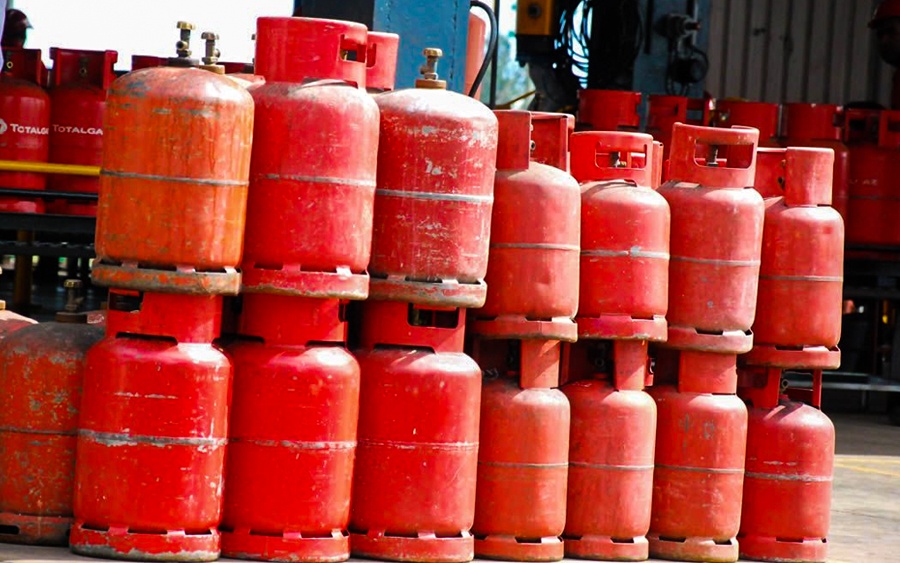The Federal Government has implemented a 7.5 per cent tax on imported Liquefied Petroleum Gas, popularly called cooking gas, as the cost of the commodity leap by over 100 per cent within a period of eight months.
It was gathered that the government implemented the VAT on LPG imports about three weeks ago and some dealers were also mandated to pay the tax for commodities imported several months ago. Operators said that Nigeria imports about 70 per cent of the commodity, while the rest was mainly supplied by the Nigeria Liquefied Natural Gas company.
It was also gathered that the cost of a 12.5kg of cooking gas that sold for about N3,500 in December 2020 had jumped to as high as N6,800 in parts of Abuja.
A resident along the Lagos-Ibadan road said she bought the commodity on Sunday at N7,200 in Lagos, as dealers projected that the cost might hit N10,000 in December this year.
The National Chairman, Liquefied Petroleum Gas Retailers Association of Nigeria, Michael Umudu, said there were three factors that caused the surge in price. The first factor is that about 70 per cent of the gas consumed in Nigeria is imported and importers have to contend with the high cost of foreign exchange. Secondly, there is a rise in the price of petroleum products in the international market and because of that; the cost of LPG has equally gone up. So importers now pay more on imports. Thirdly, the government added VAT on imported LPG about three weeks ago. The VAT is 7.5 per cent of the cost of the commodity and this exacerbated the price hike of cooking gas in the past three weeks.
Umudu stated that before the introduction of VAT, foreign exchange and cost of petroleum products in the international market had been the factors causing the rise in price. “Around November/December last year, 12.5kg was sold at about N3,500, but in July it went up to around N5,500 and when VAT was introduced about three weeks ago, it now escalated to about N6,500 and above,” he stated.
Umudu added:“The price hike seems to be happening on a daily basis and nobody can tell when it will stop. There has been a lot of appeal to the government to find a way of persuading NLNG to increase its domestic supply so that the product can be affordable. NLNG supplies about 35 per cent of the gas we consume locally and that percentage is not adequate. And the gas sold by NLNG is even sold at international price and is priced in dollar not naira.”



